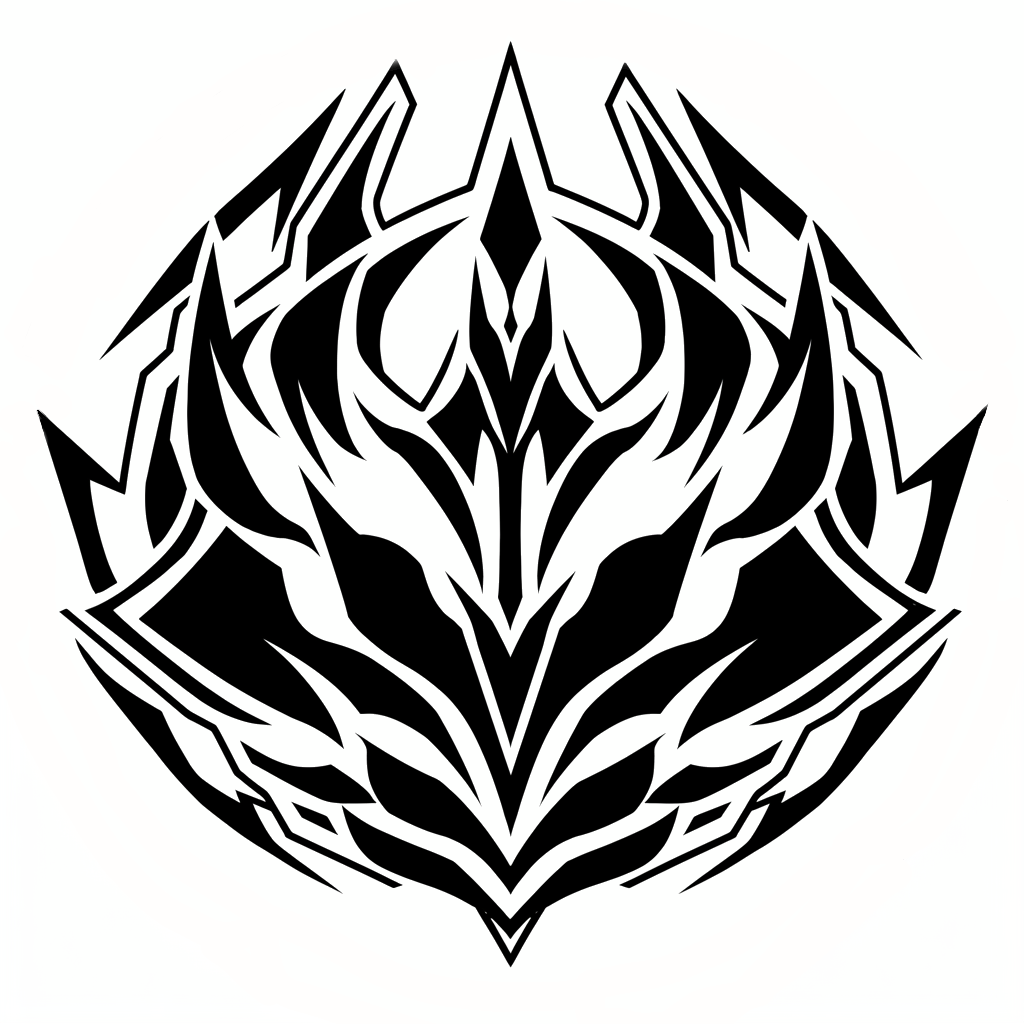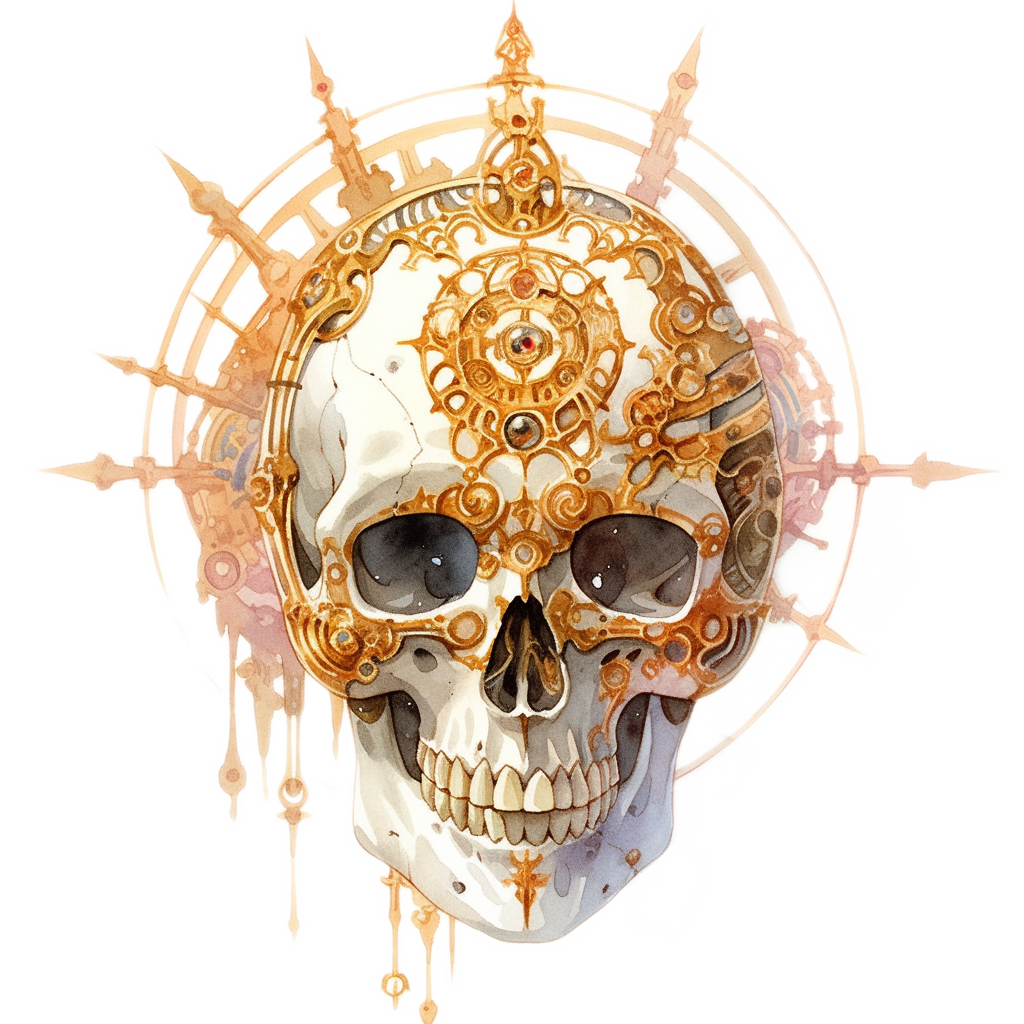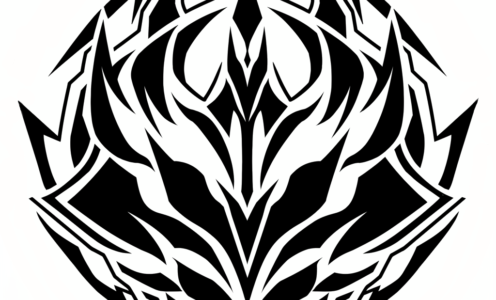The Athar

Defiers, the Lost, the Doubters, the Damned
Philosophy: The gods are frauds; the unknowable truth lies beyond the veil.
Headquarters: Sigil / Lower Ward / The Shattered Temple
Factol: Terrance
Role: No official role in Sigil but they keep an eye on the machinations of the temples in Sigil and make sure priests don’t get too big for their boots.
The Athar, the lost in the mists, the doubters of the gods. They’re the barmy lot who reckon the so-called “powers” are just high-up bashers, not genuine divinities. Their philosophy is a skeptical approach to religious and metaphysical beliefs—the Athar are those folks who question the existence or nature of deities, leaning towards agnosticism or atheism. But there’s a twist: they do generally acknowledge the existence of some higher, unknowable truth or power, and some of ’em believe in a creator deity, just one who doesn’t interfere with the universe—this force is unseen, unheard and unknowable. They call this entity the Great Unknown, and what’s more, the chant goes that clerics of the Great Unknown actually receive spells!
The faction headquarters, the Shattered Temple in Sigil, is a stark reminder of the transience of divine power. They say it used to belong to some power or other who got on the wrong side of the Lady of Pain, and the temple paid the price. It’s also useful for the faction to be based in Sigil, where the powers they insult can’t touch ‘em—although the Athar still have to worry about their priesthoods…
The primary activity of the faction in the Shattered Temple is the production of blasphemous pamphlets and tracts. Athar scribes produce a never-ending flow of anti-religious material which factioneers hand out to Cagers. Contract mages even create enchanted pamphlets that spout out their screed for bashers aloud who never learned to read.
Another place the Athar are drawn to is the Astral Plane. With its mortuary of dead powers, the Astral serves as a graveyard of the gods, reinforcing the Athar belief that divinity is a fraud, because surely no real god worth their salt would be able to die. Once a factioneer claps eyes on the floating husk of a power, they’re like the child who’s peeked behind the curtain and can’t go back to believing in illusions.
The Athar invite cutters to question their beliefs, look beyond the apparent conventional wisdom, and ponder what really pulls the strings in the multiverse.
The Athar and Alignment
Athar factioneers can be of any alignment. Here are some suggestions of how the philosophy might morph depending on the moral and ethical outlook of the faction member:
Good-aligned characters: They might see the Athar’s beliefs as a call to focus on doing good for its own sake, not for divine reward or because you’re told to. They could view some of the powers as examples to follow—or as examples of corrupt beings to not follow, but certainly not as ultimate moral authorities.
Lawful characters: They could find the Athar’s philosophy challenging. The idea that the ultimate power is unknowable might clash with a fundamental need for order and structure. However, they might also see it as a call to find order in themselves rather than relying on external divine order to tell them what the rules are.
Chaotic characters: They’d likely be drawn to the Athar’s rejection of traditional divine authority. This aligns with a love of freedom and disdain for imposed order. The idea of an unknowable truth could be seen as the ultimate expression of the chaotic mystery of existence.
Neutral characters: These folks might find the Athar’s philosophy appealing due to its balanced view. It neither fully rejects the idea of higher powers nor fully accepts them. It’s a sort of philosophical middle ground that acknowledges the complexity and mystery of the universe.
Evil characters: These cutters might appreciate the Athar’s view as it frees them from divine moral constraints. They might use the idea of false gods to justify their own selfish or malevolent actions, believing that moral authority is a sham. If there are no morals, then there’s nothing to stop them doing whatever they want.
Real-World Philosophical Parallels
The Athar’s philosophy centres around their rejection of the powers as false deities—they don’t deny that powers exist, but do dispute that they’re divine beings worthy of worship and veneration. In a multiverse where a blood can wield the arcane might of an archmage, or a tanar’ri can ascend to be an Abyssal Lord of an entire infinite layer of a plane, the so-called ‘powers’ are just one stage more advanced than this. Deciding that this kind of creature is a regular powerful cutter but that kind is a deity…well, it’s arbitrary at best. The Athar argue that an actual god would be fundamentally unknowable, and none of the powers seem to fit that. Because of this, they reject the powers as frauds.
There are several real-world philosophical and religious ideas that overlap with the beliefs of the Athar:
The most obvious parallel can be found in atheism—the absence of belief in the existence of deities, and agnosticism—the belief that the existence of deities is unknowable. The assertion that the powers are false gods aligns with the stance of atheists, and their notion of an incomprehensible divinity echos agnostic thought.
Building on this line of thought, deism is the belief in a supreme creator who does not intervene in the multiverse after creating it. The Athar’s belief in the Great Unknown as an unknowable force echos deism, particularly the aspect of the creator being beyond the reach of mortals and their lack of direct involvement in things. Gnosticism takes this one stage further, emphasising the idea of an ultimate, transcendental reality that is beyond the material world or mortal understanding, and introduced mystical practises designed to interpret this.
Skepticism is another important facet of the Athar way of thinking. This involves questioning and challenging the claims of truth and knowledge of the ‘religious’’, especially when it comes to the Athar denying the divinity of such endlessly powerful beings. The more militant members of the faction could also be called iconoclasts, which refers to the active destruction of religious artefacts and symbols, or more broadly a rejection of the established institutions of temples and organised religion.
Finally, aspects of Athar philosophy mesh with the ideas of humanism—although in the planes, perhaps ‘mortalism’ would be a better word. This emphasises the agency of people over inherited dogma, and leans towards critical thinking and forming views based on evidence rather than superstition. The insistence of the Athar on their own investigations rather than blindly swallowing the claims of the powers shares similarity with humanism.
Overall, the philosophy of the Athar is a blend of atheistic and agnostic skepticism, deistic notions of an unknowable supreme being, iconoclastic rejection of established religious powers, and a humanistic pursuit of truth. The faction attempts to question the very nature of divinity and its role in the multiverse, demanding evidence beyond the claims of those beings powerful enough to simply announce themselves as deities.
See Also: The Athar Guide to the Powers
Source: Jon Winter-Holt, mimir.net, inspired by dirt_the_cook of the Unofficial Planescape Discord

